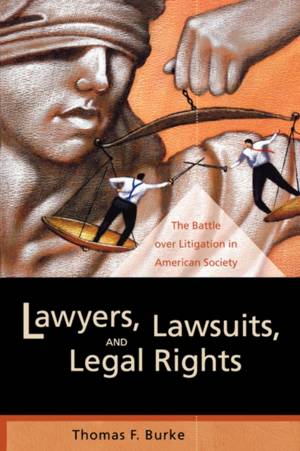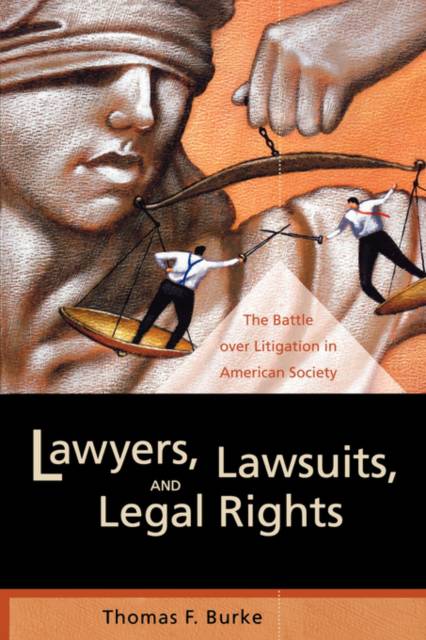
- Afhalen na 1 uur in een winkel met voorraad
- Gratis thuislevering in België vanaf € 30
- Ruim aanbod met 7 miljoen producten
- Afhalen na 1 uur in een winkel met voorraad
- Gratis thuislevering in België vanaf € 30
- Ruim aanbod met 7 miljoen producten
Zoeken
€ 52,45
+ 104 punten
Omschrijving
Lawsuits over coffee burns, playground injuries, even bad teaching: litigation "horror stories" create the impression that Americans are greedy, quarrelsome, and sue-happy. The truth, as this book makes clear, is quite different. What Thomas Burke describes in Lawyers, Lawsuits, and Legal Rights is a nation not of litigious citizens, but of litigious policies-laws that promote the use of litigation in resolving disputes and implementing public policies. This book is a cogent account of how such policies have come to shape public life and everyday practices in the United States.
As litigious policies have proliferated, so have struggles to limit litigation-and these struggles offer insight into the nation's court-centered public policy style. Burke focuses on three cases: the effort to block the Americans with Disabilities Act; an attempt to reduce accident litigation by creating a no-fault auto insurance system in California; and the enactment of the Vaccine Injury Compensation Act. These cases suggest that litigious policies are deeply rooted in the American constitutional tradition. Burke shows how the diffuse, divided structure of American government, together with the anti-statist ethos of American political culture, creates incentives for political actors to use the courts to address their concerns. The first clear and comprehensive account of the national politics of litigation, his work provides a new way to understand and address the "litigiousness" of American society.
As litigious policies have proliferated, so have struggles to limit litigation-and these struggles offer insight into the nation's court-centered public policy style. Burke focuses on three cases: the effort to block the Americans with Disabilities Act; an attempt to reduce accident litigation by creating a no-fault auto insurance system in California; and the enactment of the Vaccine Injury Compensation Act. These cases suggest that litigious policies are deeply rooted in the American constitutional tradition. Burke shows how the diffuse, divided structure of American government, together with the anti-statist ethos of American political culture, creates incentives for political actors to use the courts to address their concerns. The first clear and comprehensive account of the national politics of litigation, his work provides a new way to understand and address the "litigiousness" of American society.
Specificaties
Betrokkenen
- Auteur(s):
- Uitgeverij:
Inhoud
- Aantal bladzijden:
- 267
- Taal:
- Engels
- Reeks:
Eigenschappen
- Productcode (EAN):
- 9780520243231
- Verschijningsdatum:
- 12/10/2004
- Uitvoering:
- Paperback
- Formaat:
- Trade paperback (VS)
- Afmetingen:
- 151 mm x 226 mm
- Gewicht:
- 390 g

Alleen bij Standaard Boekhandel
+ 104 punten op je klantenkaart van Standaard Boekhandel
Beoordelingen
We publiceren alleen reviews die voldoen aan de voorwaarden voor reviews. Bekijk onze voorwaarden voor reviews.











